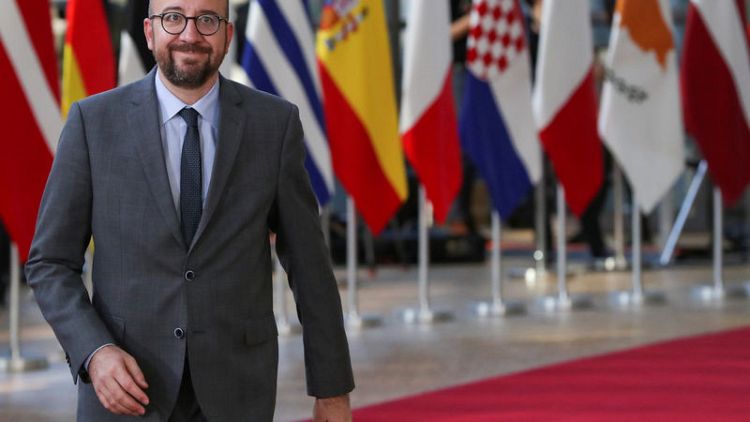By Philip Blenkinsop
BRUSSELS (Reuters) - Linguistically-split Belgium holds a national election on Sunday that polls show is unlikely to allow Prime Minister Charles Michel to renew his centre-right government.
Michel, 43, has been running the country of 11 million people in a caretaker capacity since December and could face many more months in that role if party leaders struggle to form a new coalition after the vote.
In 2010, that task took a world record 541 days until Elio Di Rupo, who still leads the francophone Socialists, finally took office.
"The lesson from 2010 is we can cope for some time with a caretaker government. There will be a government, but it could be in 2020," said Carl Devos, political analyst at Ghent University.
Belgium effectively runs two separate elections in the Dutch and French-speaking regions, with no national parties, after which it will somehow have to weld together a federal government from a more left-leaning south and right-leaning north.
Wallonia in the south is forecast in polls to shift more to the left, making the Socialist Party (PS) the biggest with the hard left Workers Party (PTB) gaining ground. Michel's liberal Reformist Movement (MR) is seen losing seats in both Wallonia and the capital Brussels.
Among Dutch speakers, the centre-right New Flemish Alliance (N-VA), which ultimately wants to make richer Flanders a separate country, is expected again to win the most seats, while the far-right Vlaams Belang is also seen making gains.
N-VA, expected to be the largest overall party with some 30 percent of the Flemish vote, could push for further devolution to Belgium's regions, which already have wide powers over transport, agriculture and aspects of economic policy including foreign trade.
That is something the poorer south resists, fearing it will only become worse off.
Belgians simultaneously elect federal and regional assemblies, as well as participating in the European Parliament vote.
Climate change has emerged as one key campaign theme, to the benefit of the Greens. Mainstream parties are expected to see support slipping, as in other European countries.
Economists at ING said the next government was unlikely to follow up the initial reforms of Michel's centre-right government and could even reverse some, such as an increase in the retirement age to 67 from 65.
They also say maintaining stable public finances of a country's whose public sector debt to economic output ratio is set to be the fourth highest in the euro zone this year will be a major challenge for any new government.
(Reporting by Philip Blenkinsop; Editing by Andrew Cawthorne)
